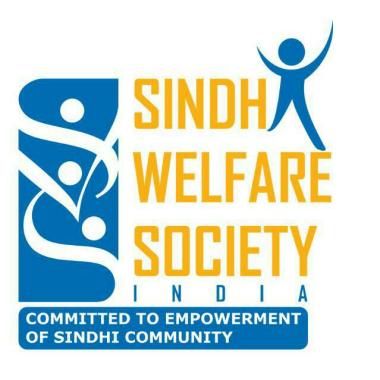Moti Prakash : In Conversation with Menka Shivdasani
Dr Moti Prakash is a poet, translator, script writer, playwright and educationist. He has several collections of poems including Aao Ta Choriyoon Chung andChining Vich Choley, Tuhinjeen Galia Jun Galhriyoon. Among his works is a novel (Andhero Ujalo); a three-act play (Parde Agiyan Parde Puthiyan), and a collection of essays (Adabi Gul). His travelogue, Se Sabh Sandhiyum Saah Sen, won a Sahitya Akademi award in 1988. He has also written scripts and dialogues for films, including Raat Hik Toofani Ji, Naqli Shaan, and Anja Ta Ma Nandri Ahyan.
During his distinguished career as a writer and educationist, Moti Prakash has won several awards, among them the Lifetime Achievement Award by the Sindhi Academy, Delhi (2006), Lifetime Achievement Award from the National Council for Promotion of Sindhi Language (2009), and A.J. Uttam Lifetime Achievement Award from Akhil Bharat Sindhi Boli Ain Sahit Sabha.
Dr. Moti Prakash was the first Principal of the Indian High School in Dubai in 1977, a sought after school in the Gulf and continued as Rector for two years even after his retirement in the year 2000. Now in his eighties, he is still actively involved in the education of school children, as Honorary Director of the Sadhu Hiranand Navalrai Academy in Adipur.
Here, he shares his life and times with Menka Shivdasani in a conversation.
“I was born on 15th May 1931 and migrated to India in the wake of Partition of the country, when I was sixteen. My father, Sukhramdas Sharma, was a small landowner in Sind and post-master of the village. He was the first person who passed the Matriculation Examination of the University of Bombay in this village.
After Partition, we were allotted a small barrack in Jawahar Camp, Devlali, and later we shifted to Mumbai where we were seven of us in one small room. My father was unable to get a job, and when he finally got one in Sivakasi near Madras, he put Rs 10 in my hand and said I would have to support the family with that.
I started my career as a teacher in 1951, immediately after passing the S.S.C. exam from the S.S.C Board, Poona. I studied along with my job – I hardly went to class – and passed B.A. (Hon.) in 1956. My father later shifted from Sivakasi to Mumbai but we still lived in the same one room. Life was a struggle; my younger brothers would sell gulab jamuns so they could earn enough to pay their fees of one or two rupees a month.
I had always been interested in writing. Before Partition, my friend Gul Vasanmal, and I used to publish a children’s magazine. He was 18, two years older than me, so he was old enough to register his position as its editor. We ran it for about six months, but then the Partition happened.
In Mumbai, life was very hard, but we used to have weekly gatherings of progressive writers, organized by Prof. M.U. Malkani, President of the Sindhi Sahit Mandal. We used to present our writings and invite comments; some of these were young writers who had participated in the Quit India movement – people like Gobind Malhi, A.J. Uttam… they were pillars of progressive writing, influenced by Urdu literature. We wrote poems that called for revolution and change. We had suffered the onslaught of Partition and we used to go to Kalyan Camp in Mumbai and recite our poems and read our short stories.. People would come in large numbers to hear us and this was very heart-warming.
Our community has been scattered in all nooks and corners of India and the world. The loss of land has deprived us of our language and culture. There were no Sindhi schools except in Mumbai and these have also been shutting down over the years – where are the Sindhi schools today?
Historically, Sindhis have an in-built sense of insecurity since Sindh was subject to so many invasions thanks to the Khyber pass. The invaders used to come to loot and plunder Sindh, which was very rich. This insecurity is built into our blood.
In trying to reclaim the Sindhi language in the 8th schedule of the Indian Constitution after Partition, in which we succeeded, there was a movement for Sindhi in the Devanagari script. But this brought a second partition in the Sindhi community. Writers like me felt that this would cut us off from all our literature in the Arabic script and it would not be possible to transliterate all of it – never mind fiction and poetry but even ‘useful’ books. By adapting to Devanagiri, we have been completely cut off from our roots, from the land of our birth. It was argued that children knew the Devanagiri script so it would help them learn Sindhi, but as a result of this, Sindhi medium schools have switched to Hindi. This was our fear. We therefore wanted the original Sindhi script retained, and additional scripts adopted if necessary.
Today, contemporary Sindhi literature is in a state of coma. A few people like us at the Indian Institute of Sindhology have fought for the preservation of our culture, our language and our literature. We feel that at least oral culture will help bring the Sindhi community together since Sindhis are scattered all over the world.
Yes, there are very few readers of Sindhi today. We write for each other, but even if a few of us can appreciate what we write, it is enough.”
Dr Moti Prakash left for heavenly Adobe on 4th Aug’2015 @ Mombai. May his soul rest in peace. May he be remembered by Sindhi future generations to come for his work done for sindhi community.



Super..Thanx To SWS ..We Were Not Knowing His Life. & Sttrugels..He Faced..
LikeLiked by 1 person
Late Dr Moti Prakash was my school principal at K J Khilnani High School, Dadar(W).Cherish fond memories of him.
LikeLiked by 1 person